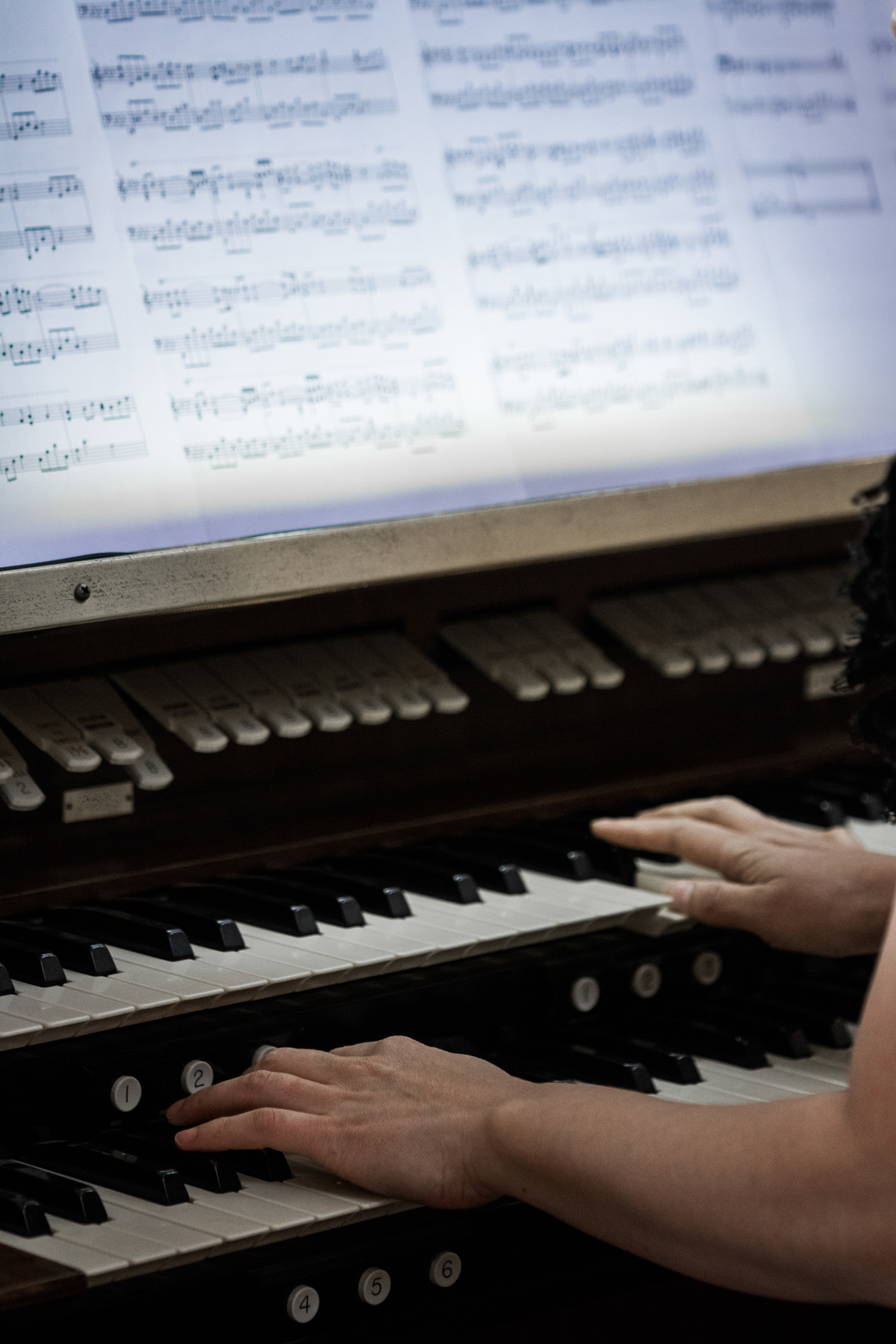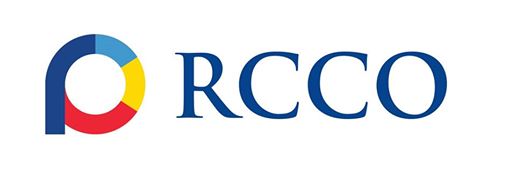Thanks for visiting this page which is designed for parents and students interested in knowing more about organ study.
The following questions and answers should help you begin to assimilate information for taking the next steps with your interest in the organ and its repertoire.
Why should I learn the organ?
The list of reasons to not learn the organ would be far shorter. You should learn the organ because it is our king of instruments. The organ has a unique expressive character, limitless tonal capability, immense dynamic (volume) range, and a long and very rich history of musical excellence. Like humans, every organ is entirely unique, making exploring other instruments an exciting adventure.

Hands of Someone playing Organ In a Church
What are organ lessons all about?
Organ students learn not only repertoire for the organ, but also organ technique, organ musical literacy, artistry and expression on the organ, organ history and construction, and even improvisation. If the student wishes, there is also much to learn about church music and worship accompaniment involving the organ.
What experience is necessary to play the organ?
Each teacher will have their own guidelines, however a general consensus is that a student should be proficient in approximately grade 7 piano before considering serious organ study. Of course it is never too early to start, so students with less piano experience may begin organ lessons with less frequency than their piano lessons. There is also Suzuki organ instruction for younger students.
Where do I take organ lessons? Where can I practice the organ?
Organ lessons generally take place in the church or performance hall where the instructor is music director or organist. If the instructor is not currently employed with a church or institution, many churches happily negotiate or schedule use of their instruments for instruction and performance purposes.
Organ students can accomplish some practicing on the piano, but of course practicing on a real pipe organ or high quality digital organ is always best. Again, many churches will accept students wishing to use their organs for practice purposes. An electronic organ may also be purchased for home use, used or new instruments both being available on the market.
What do I need to take organ lessons?
Any student with enthusiasm, determination, and a love for music can experience success with the organ! Basic required materials include organist’s shoes and music. Organists’ shoes are required to successfully learn good pedal technique, since the shoes are designed to fit the shape of organ pedalboards. Visit a dance studio for Capezio A400 shoes or visit store.organmastershoes.com to learn more about organ shoes. For music, like many other instruments, usually the student purchases some books of their own while sharing others with their teacher. You do not need to own an organ to begin learning!
How much do organ lessons cost?
Most professional music lesson fees in the Niagara area are around $50 per hour, however individual instructors set their own rates. RCCO as a national organization, as well as RCCO Niagara, have scholarships available for beginning students. Please see our scholarship page found here for more details.
 Why be part of RCCO Niagara as an organ student?
Why be part of RCCO Niagara as an organ student?
RCCO Niagara is Niagara’s premier organization for support, education, professional development, fellowship, (and of course lots of fun) among organists and organ lovers. As a student member, you can gain the insights and knowledge of seasoned professionals, access resources, hear amazing stories, and learn all about the organ in Niagara.
As an RCCO member, you also can also take accredited RCCO examinations, be eligible for advanced study scholarships, attend national conventions, access educational resources and publications, and compete in organ competitions. Please submit note on our contact page to learn about becoming a member.
Have more questions? Just send us an email and we’ll get back to you!
